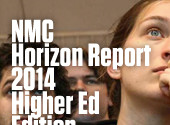Interactive Educational Television in the Amazon
According to figures from the UNESCO Institute for Statistics, “Countries will need an extra 1.6 million teachers to achieve universal primary education by 2015 and 3.3 million by 2030”. The 2013/4 Global Monitoring Report provides a useful discussion of the consequences of this deficit, as well as some strategies for overcoming it. There are, unfortunately, […]















